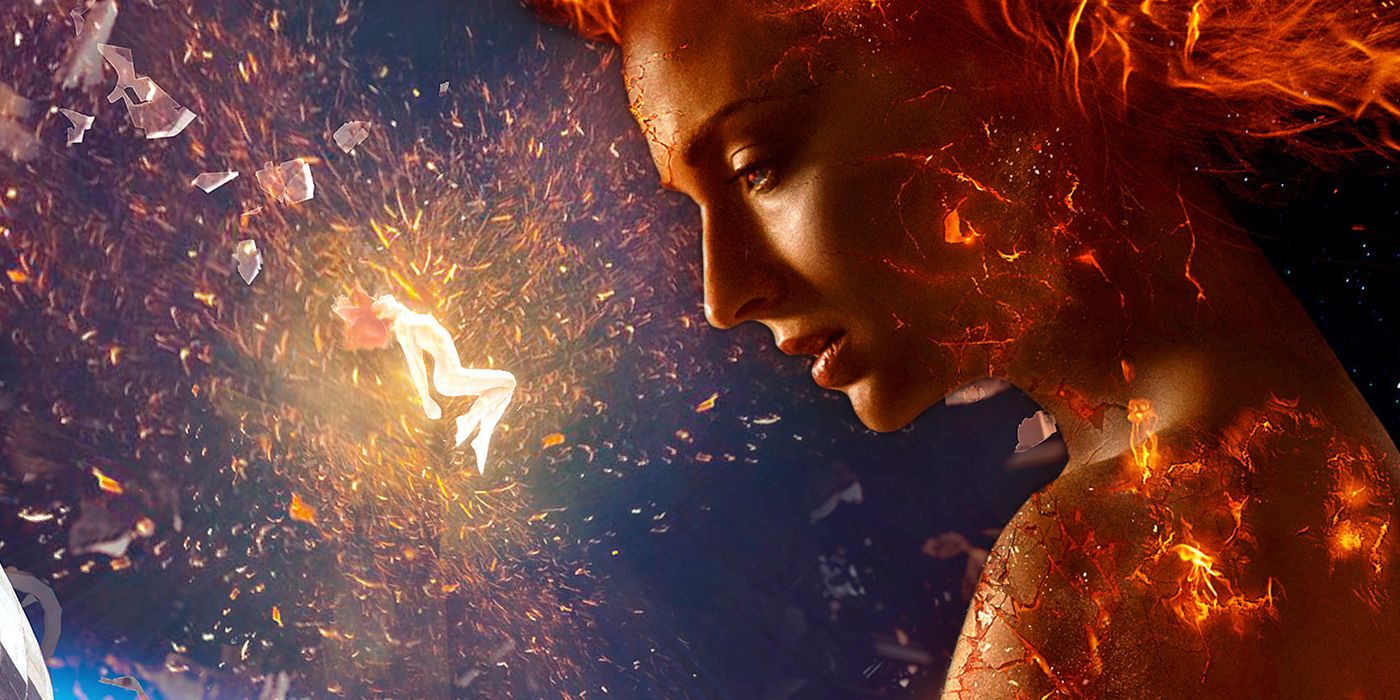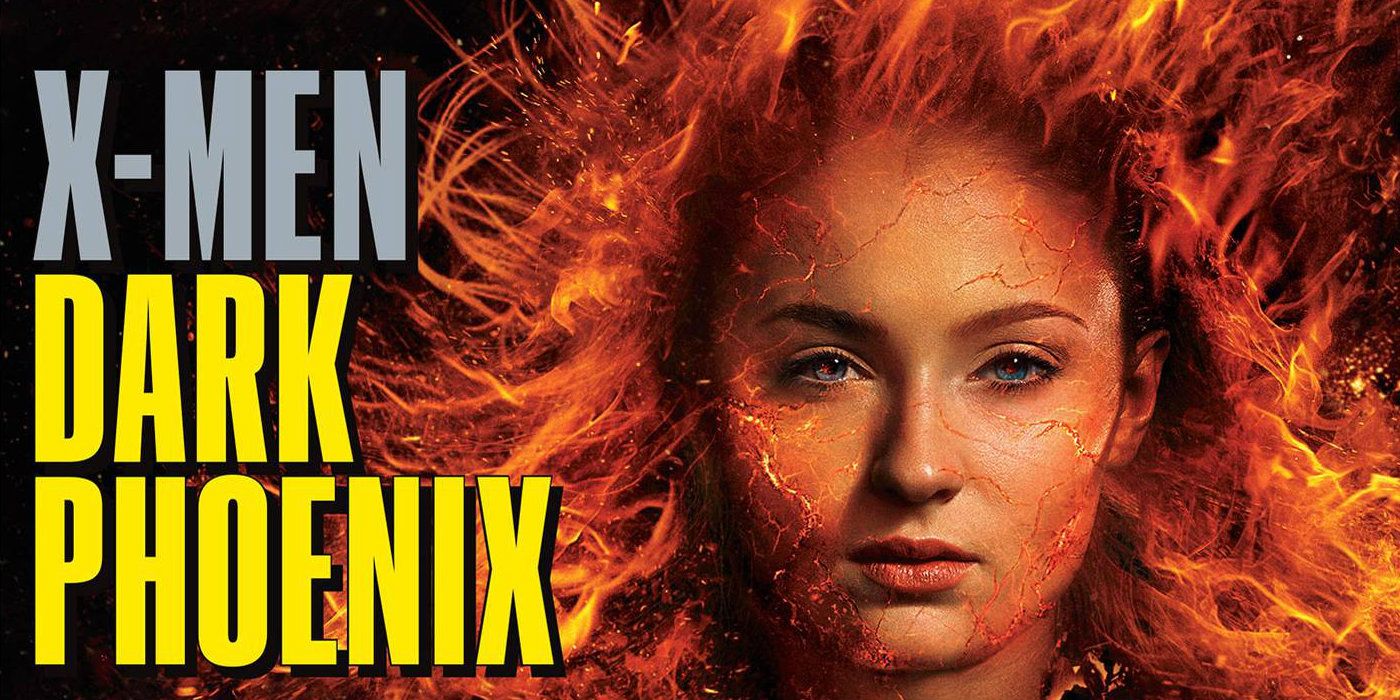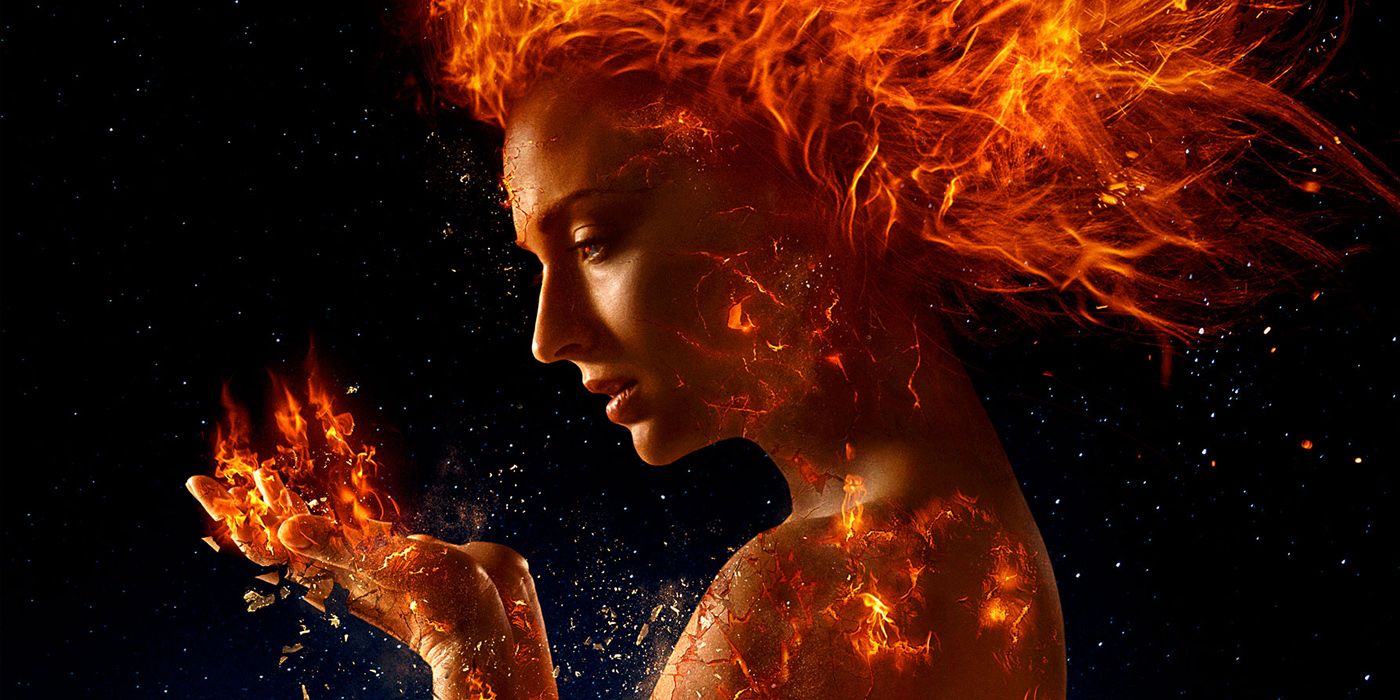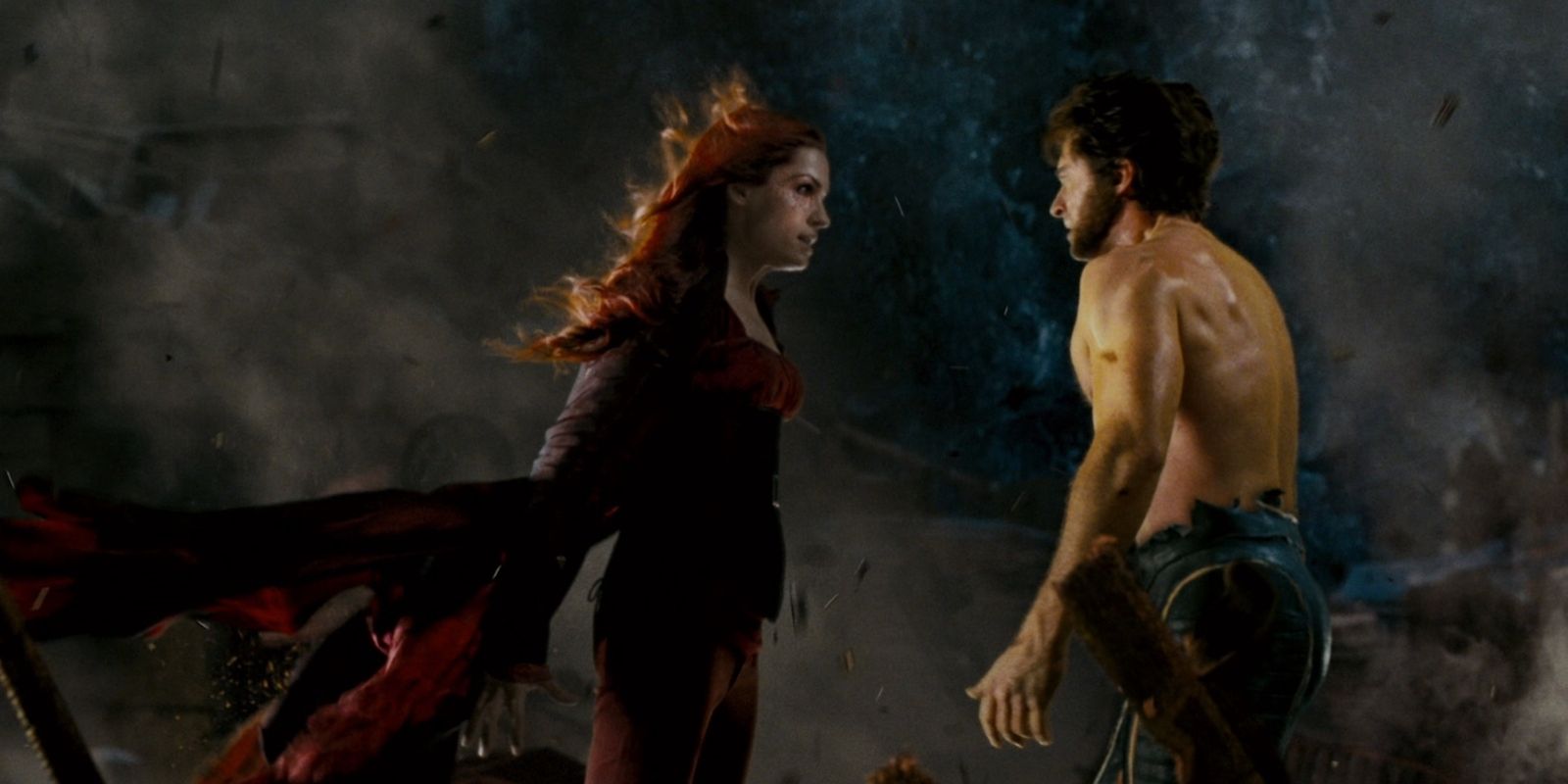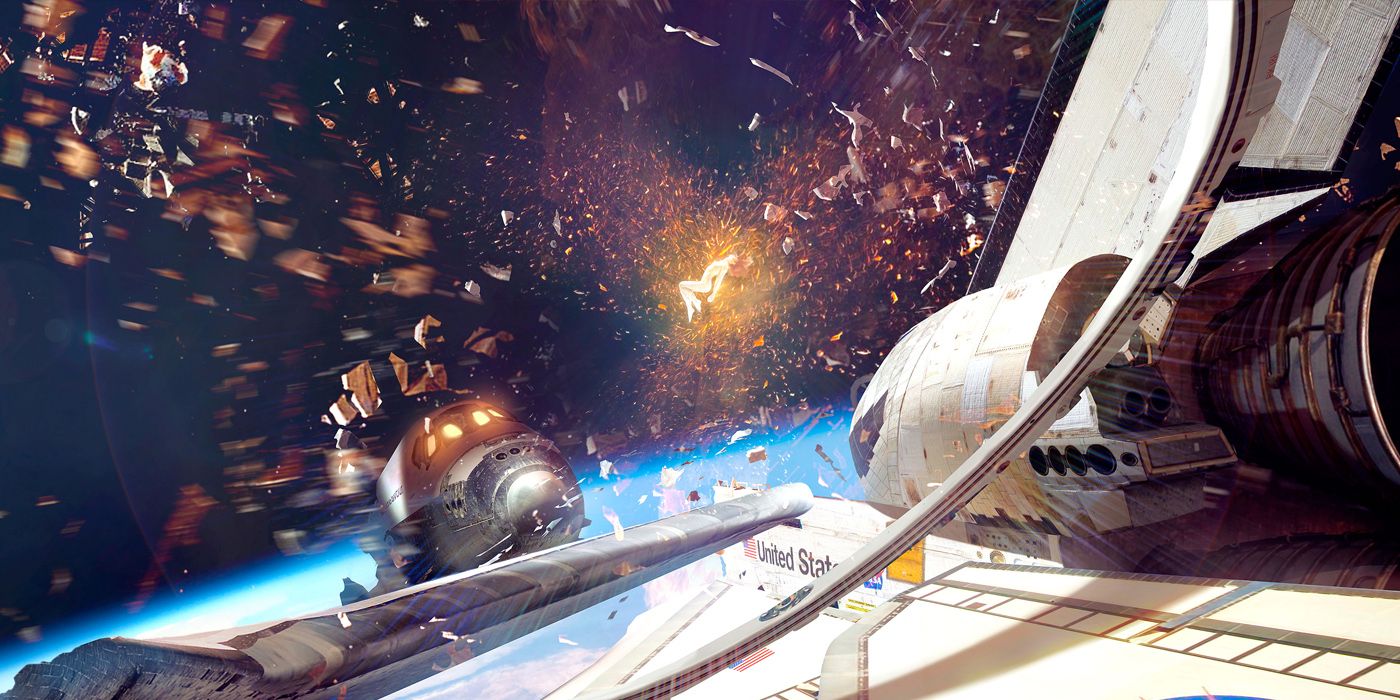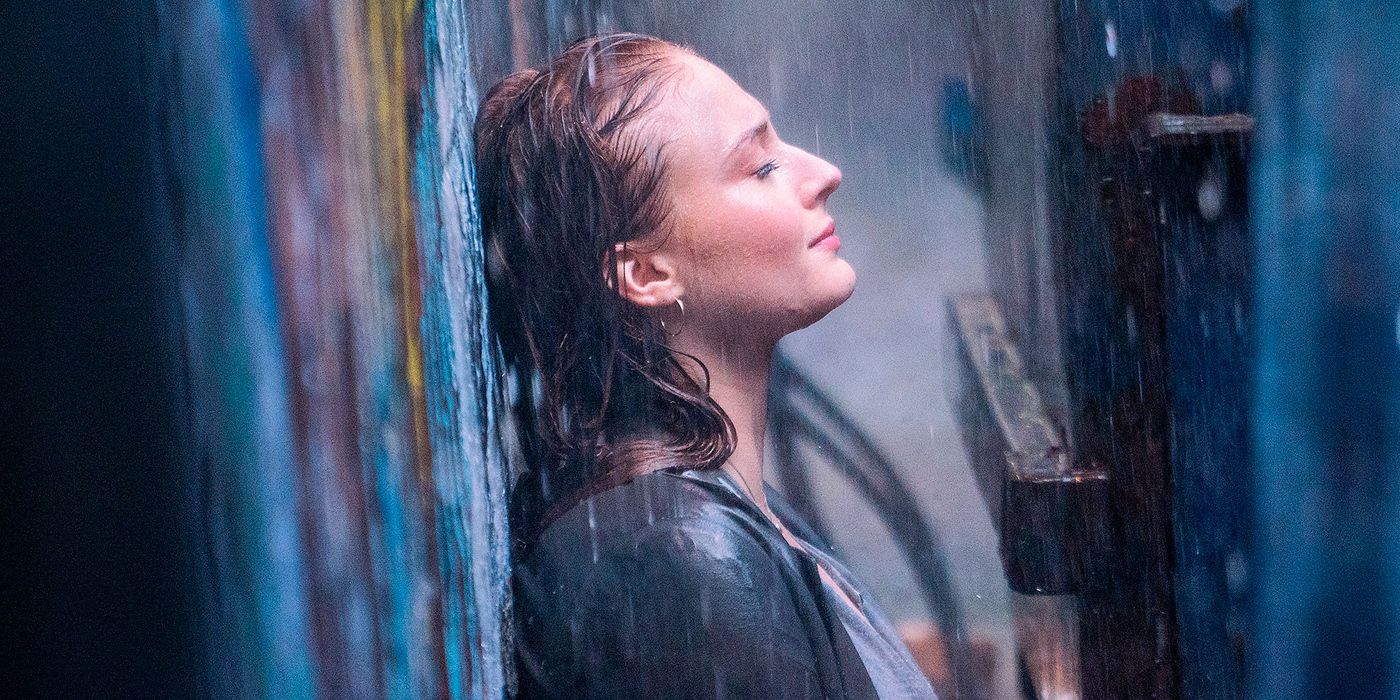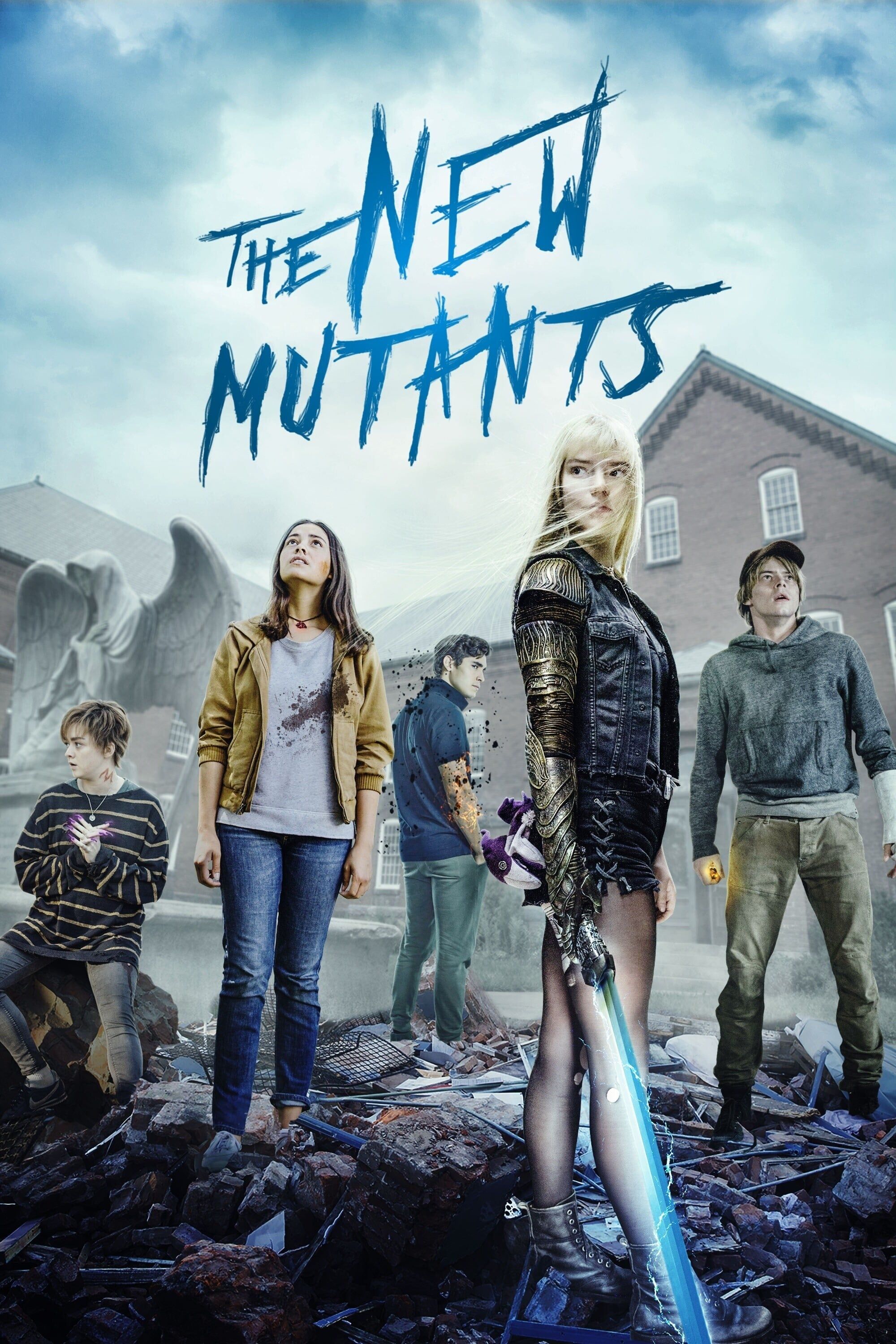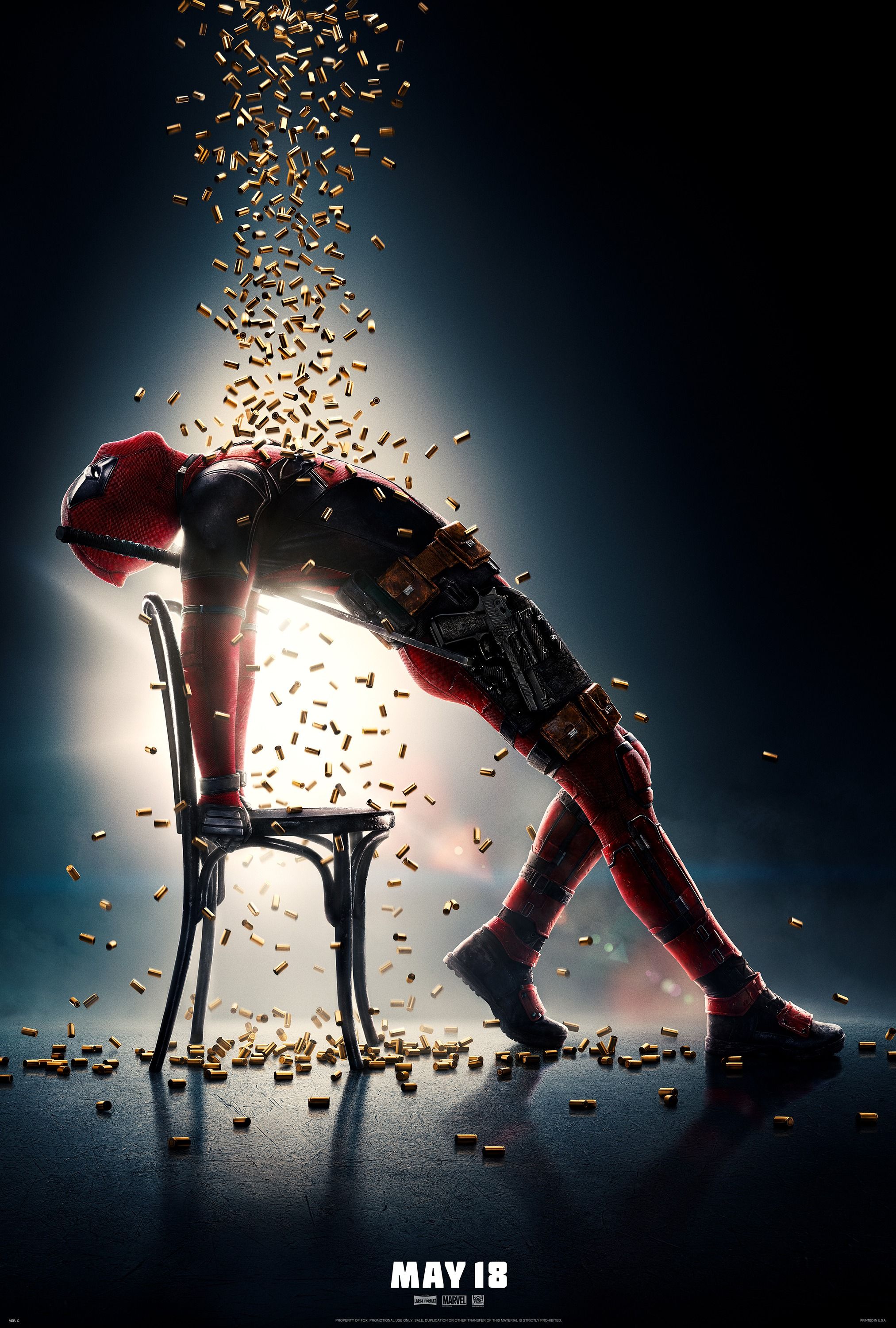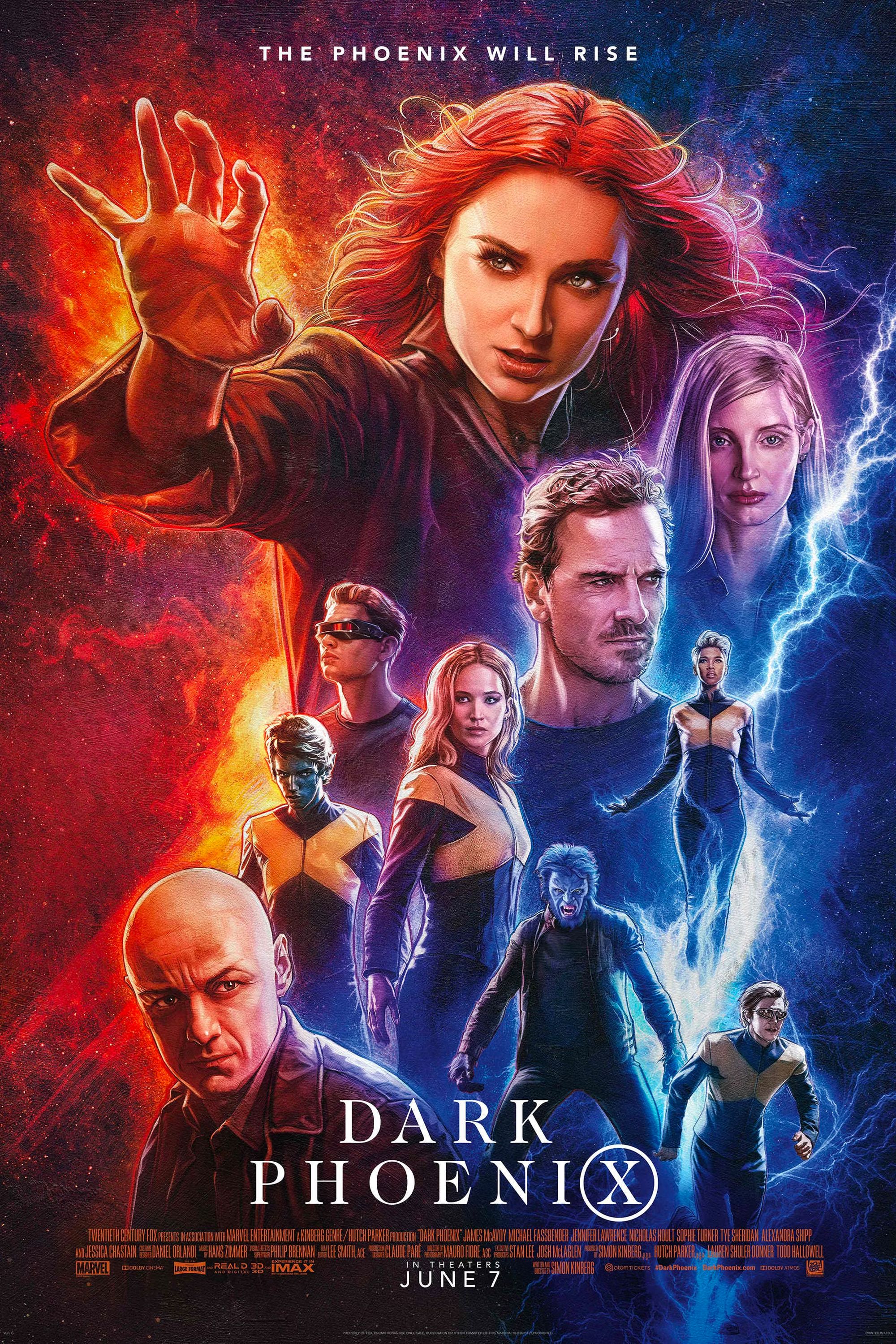We may finally have some details on X-Men: Dark Phoenix, but it's hard to not say the film looks a little bit worrying. 2018 is a red letter year for the X-Men franchise. After successfully rebuilding excitement for the long-in-the-tooth series (seventeen years, still vaguely in the same continuity) with the one-two R-rated tap of Deadpool and Logan, they're upping their output to three movies a year and look set to become the more ambitious alternative to Marvel: in February there's horror New Mutants, then balls-to-the-wall comedy Deadpool 2 in June, with it all coming to a close in November with main series entry X-Men: Dark Phoenix.In theory, the latter should be the most exciting of the set. The other two are basically genre exercises: this is the big, central movie, featuring the classic characters who've been cinematic staples since X-Men all the way back in 2000. And it's doing an exciting story. The story, in fact. There are few arcs in comics more lauded that The Dark Phoenix Saga; when it comes to X-Men there's really only Days of Future Past for competition and that was already turned into a (very good) film. It's the story that made Jean Grey and showed the extent of the Merry Mutants concept. In fact, it's one so important that they're doing it again after fudging it in X-Men: The Last Stand (we'll get back to that).Related: First X-Men: Dark Phoenix ImagesAnd yet we're yet to really get anything beyond promise. So far, the entire project has been so muted, with none of the careful hype build-ups we saw for Deadpool, Logan or even New Mutants. Its title and content was kept a mystery despite the expected source and the fact producer Simon Kinberg would direct (again, we'll come back to) was barely confirmed before shooting began. And the production felt weird by modern standards, with little-to-no-celebration of its start, continuation (there were no major set visits for press) or end. It's muted in a way we haven't seen from Fox since Fantastic Four - and we all know how that turned out. That alone isn't cause for worry, of course, but it sets a mood of cautiousness.The Marketing Has Started With A Whimper (This Page)
The Marketing Has Started With A Whimper
Now the hype machine is kicking into gear almost eleven months in advance with an EW cover story that, while giving us information, is ultimately underwhelming. If you're going to play up secrecy and then have a major reveal, you need that reveal to be a home run. This isn't that. Not that Dark Phoenix sounds bad in the write-up, it just compounds a feeling that's been brewing. We're in a superhero golden age, and yet the red bird feels like a throwback.
The main takeaways from the reveal are a reaffirmation some things we knew - this definitely is the Phoenix Saga again, the X-Men will go into space, Jessica Chastain is a villain - and a few more overt hooks: Professor X is egotistical after the X-Men become celebrities and there's a massive twist, possibly linked to the death of a key character. So we have a bunch of clarifications that are less interesting than their initial suggestion, and some very blatant hooks that feel inorganic (do we really need another prequel film where Professor X isn't himself?).
We'll get to the stuff we know later as it plays into a bigger problem, but for now let's focus on that twist. Even though it's allegedly partway through the story (so not an ending spoiler and possibly something we'll have explored in later advertising), that's the sort of thing that shouldn't be stated so far in advance; everyone involved with Star Wars: The Last Jedi has tried to play down the nature of a reveal of Rey's parentage, yet here's Dark Phoenix confirming a "franchise-changing" one over a year in advance. Obviously it's only been stated to drum up hype, but in reality all that really is guarantee someone will guess it and everyone will be inevitably disappointed. It feels artificial, done to get people excited for this current film by what it could mean for the future; a tactic that far too many wannabe shared universes have fumbled.
Related: Dark Phoenix's Big Twist' Could Be The End of the X-Men
Add to that the images are either anticlimactic (the CGI in the space moment leaves a lot to be desired) or again teasing something they shouldn't (we have the X-Men at a funeral, signaling a death for presumably a one-shot minor character) and you can feel the PR strings. But marketing does not a movie make. Although, when it's superheroes, a good source should.
Is This Really Dark Phoenix?
As already established, the main reason to be excited for Dark Phoenix is that it's giving us a second attempt at the Phoenix Saga. The broad strokes are the X-Men are on a spacefaring mission when Jean is hit by a solar flare and has her power enhanced, becoming Phoenix, later revealed to have been a greater force possessing her. Realising her true potential, Jean turns on the X-Men and aids the Hellfire Club in subduing them, before finding Earth-bound concerns pithy and heading into space. Here she consumes a supernova, killing billions in the process and becoming the most wanted being in the Shi'ar Empire. While Phoenix wrestles with guilt and her past, the Shi'ar decree Jean must be killed, leading to conflict with the still-protective Xavier. The Shi'ar plan to destroy the solar system to stop Phoenix, but Jean eventually takes control and sacrifices herself to save the world.
Related: Can X-Men: Dark Phoenix Finally Do The Comic Justice?
It's big cosmic epic, with Skrulls and Kree, as well as lots of differing X-factions: the Hellfire Club, the Avengers and more factor in. But it's ultimately a personal story for Jean (and lover Cyclops), an exploration of true power and what it is to be a God. That means it's not just a good comic arc, but ripe for transferring to the big screen; especially as "superheroes as Gods" has become such a key topic of discussion.
The Last Stand Messed Up The Phoenix Saga
The original trilogy made quite a few changes to the Phoenix Saga, mainly due to genre limitations of the time. Instead of being a space being or even catalyzed by solar flares, the Phoenix force was latent extreme power inside Jean Grey that had been suppressed by Professor X when she was a child but awakened by the confrontation with Magento in the original X-Men. X2 ended with Grey sacrificing herself to save the rest of the mutants, harnessing some of that power in her last moments before a final shot teasing her return.
The problems came in The Last Stand. Due to a variety of problems including a revolving door of directors (Bryan Singer left to do Superman Returns, then replacement Matthew Vaughn also bailed, leaving Brett Ratner to helm with short turnaround) the plan of a proper Phoenix Saga film was changed, with it instead forming a character backdrop to a primary narrative about a mutant cure. Even if has been the focus, though, it's unlikely Jean would have been better served.
The overall approach to Phoenix was that it simply made her an evil femme fatal, killing Scott and Professor X (a case of forced stakes-raising not dissimilar to the promised twist of Dark Phoenix) before wreaking havoc with little purpose. Her dying at the hands of distant lover Logan was a nice touch and powered an interesting thematic throughline in The Wolverine, yet it wound up with Jean being far too gone for repentance. "Missed opportunity" is putting it likely.
Can Dark Phoenix Do It Justice?
There are very few ways Dark Phoenix could handle the arc worse. It's definitely hewing closer to the comic, with the power actually coming from space and driving Jean on a deadly mission against her fellow students and mentors. We also have an outside influencer in the form of Jessica Chastain, who may not be Shi'ar Empress Lilandra (an essential role in the comic) yet is looking to fill her shoes at least a little bit.
Read More: Jessica Chastain Could Be Playing This Skrull Empress In X-Men: Dark Phoenix
But how much of this is window dressing? We saw in X-Men: Apocalypse that, as in the previous original continuity, there was some latent firepower within Jean, so any Phoenix possession is an accentuation of the same repression (and not the evolved Phoenix Force itself). As for the space origins, that feels like box-ticking; they go into space, sure, but by all accounts, the action is Earth-bound, evidenced by how the Phoenix sequence appears to be in Earth's upper-atmosphere and no mention of Shi'ar. If you're going into space, go all in; this is more Fantastic Four's 1962 origins than it is extreme cosmic roving.
On a more technical scale, Jean is a primary concern here. Apocalpyse's handling of the character - both Sophie Turner's breathless performance and the shoehorning in of the Phoenix setup - was so limp that it doesn't exactly instill faith in her or the producers' understanding or ability to get it right. Even if all the questionable elements do come together to make something strong, it still needs to address the lacking version of the hero-turned-villain at its core.
It's too early to call, but it looks like we could be dealing with a faux-adaptation, one that ticks the basic boxes but once again spins off in its own direction. This was, of course, true of Days of Future Past. The cross-generational film took the basic premise of trying to change the past to avoid a Sentinel-ravaged future but then spun off into a unique situation built on the established movie relationships. However, that turn was still faithful to the core idea of the source, with it just twisted to account for the movies' confused continuity and enable an effortless soft reboot (it's one of the franchise's strongest entries). For Dark Phoenix, there's no sense of the arc's original grand scale; we could have that with the "franchise-changing" twist, but nothing evidences the same level of story integration. If it's there and being hidden, Fox is doing the film a major disservice.
And we're back to that twist. Or, rather, the positioning in the franchise.
X-Men is in an odd stage of its evolution. Fox has suddenly become a lot more ambitious in what they'll green light; Deadpool was a hard-R comedy, Logan an even harder-R western, New Mutants a full-on horror and who knows what Gambit will eventually look like. In an environment where superhero movies are dominated by four-quadrant lightness of touch and shared universes, they're creating the image of the X-Men as the franchise that dares to be different.
In that company, Dark Phoenix feels out of place. It's got a fresh cast and multi-layered nostalgic underpinnings (for both the 1990s era and the property in general), but at the end of the day, it's really an extension of the main series that began in 2000 and felt run out by The Last Stand. Obviously, Fox needs to have some family-friendly X-Men output lest they cut off an entire, rabid portion of their potential audience, but doing it with this sort of movie is outdated and unnecessary.
Related: Every Fox/Marvel Movie & TV Show Currently In Development
Yes, First Class and Days of Future Past were main series too, but they had hooks that took them away from the school status quo; Apocalypse highlighted how easy it is for things to fall into the same basic dogma. That film was basically Bryan Singer's version of The Last Stand - a trilogy capper that undid much of the majesty of what came before - and was so mired in the past it felt like it had pretty much halted development of the main series. In fact, the tepid glare it got from audiences and critics (very few people will actually come to its defense) may be why Fox has been more cagey about Dark Phoenix. That's a real dampener, and while director Simon Kinberg has admitted some of Apocalypse's faults and promised an improvement, he addressed the throwaway aesthetics rather than underlying issues.
Kingberg himself is a big question mark as is. He is a prominent writer and producer in Hollywood who's been a powering force behind the X-Men for the past ten years. And that really is for better and worse; he broke out writing The Last Stand and both wrote and produced Fantastic Four and Apocalypse, so while he has producing credits on Days of Future Past, Deadpool and Logan (as well as writing the former) to his name, he's ultimately as hit-and-miss as the franchise. Promoting him to director is a bold but unclear move, making Dark Phoenix an unknown commodity while speaking of a desire on Fox's part for a more producer-led, studio picture; the antithesis of everything else coming out.
And while that's rote in the confines of the X-Men, it's positively archaic in the blockbuster sphere. Marvel are pushing the boundaries of how far into the weirdness of comics superheroes will go, turning Thor into Flash Gordon and making Guardians of the Galaxy a key selling point for an Avengers film. For Dark Phoenix to be treading water in topics that were struggling a decade ago doesn't instill much faith. The reason films like The Mummy or Alice Through The Looking Glass so struggled at the box office is because they're a static type that offers little to a modern audience. Apocalypse was in that grouping and Dark Phoenix hasn't done much to separate itself yet.
-
Maybe there is a genuinely exciting hook to X-Men: Dark Phoenix that we're yet to see; theories range from full-on Skrull Empire to a top-down reboot of the franchise. But if that's true, it's being hidden and in its place is the illusion of the most basic superhero film of 2018. Let's hope the mutants can pull through.
Next: After Justice League There Are 7 Marvel Movies Releasing in A Row

